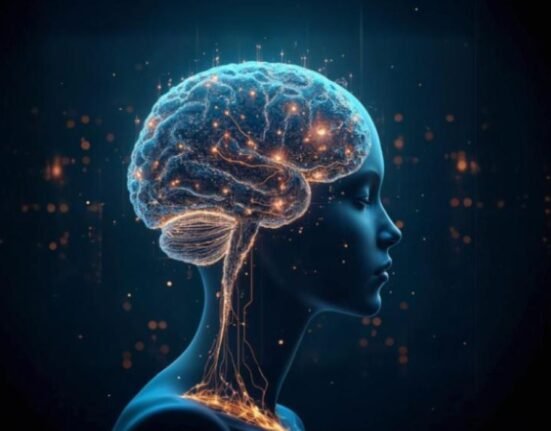Have you ever watched a movie where one of the characters loses their memory completely? So much so that it becomes very difficult for them to recognise their loved ones, and even sometimes themselves. Memory loss can happen due to several reasons and it has several forms. Memory loss is most commonly known as a sign of dementia, but most of the time all conditions of memory loss don’t qualify for the development of dementia. Amnesia on the other hand might sound a lot similar to dementia, but has a lot of differences with it. In this article, we will look at each of the conditions separately and will understand the differences between the two.
Read More: Essential tips for caregivers and families of dementia patients
Dementia
Dementia is a chronic organic mental disorder which may be characterized by symptoms like-
- Impaired intellectual functioning
- Impaired memory
- Impaired judgment and impulse control
- Impaired reasoning and abstract thinking
- Lack of personal care
- Exaggerated and rapid changes in mood
- Exaggerated reaction to minor stressors
- Thought abnormalities
- Problem holding in urine or stool
- Disorientation in time, place, and person
Impairment in all or at least a few of these functions can occur globally, causing difficulties leading day to day life. However, there is no significant impairment of consciousness. These signs and symptoms need to be present in an individual for at least 6 months, with no other disorder explaining these symptoms.
Read More: Pseudodementia: Symptoms, Causes & Treatment
But as we have seen, in elderly people there is a lack of retention of memory but that alone doesn’t mean that the person is having dementia. We need to have clear evidence of memory and other intellectual impairments, which interfere with a person’s social, emotional, and occupational functioning. Also, depression can sometimes mimic a few of the symptoms of dementia. It is common in older adults and is called depressive pseudodementia. People with depression often complain about having difficulty in sustaining attention, and concentration, reduced intellectual abilities, and sometimes general forgetfulness or lack of memory retention capacity. Although a patient with dementia might be having the same issues, the only difference is that people with dementia will not complain about it.
There are various reasons why a person might have dementia, but the majority of cases are for common causes like Alzheimer’s disease and multi-infarct dementia. Alzheimer’s dementia(commonest), multi-infarct dementia(common in India), hypothyroid dementia(most treatable and reversible), AIDs dementia complex, and Lewy body dementia.
Amnesia
Amnesia or amnestic syndrome is an impairment in memory due to an underlying cause (disease, an accident, or a stressful event). But there is,
- No severe disturbance in consciousness and attention
- No global impairment of intellectual abilities, abstract thinking or personality.
The impairment in memory can be further explained as a severe impairment of a recently learnt material, or a short-term memory, in which it becomes difficult to learn new material. The impairment can be of previously learnt material, but there must be no difficulty in immediate recall or retention of memory. The inability to recall recent memories can further lead to disorientation of time and place. To fill the gaps, the person sometimes tries to use imaginary events.
Retrograde and Anterograde Amnesia
In retrograde amnesia, individuals have perfect recollections of the events and episodes of the past but struggle to remember what happened last week or last month. In anterograde amnesia, individuals are in a continuous period of memory loss. It becomes difficult for them to create new memories. It is a rare form of amnesia and is often temporary.
Dementia vs Amnesia
Although both disorders are often confused to be the same because both of them are characterized by memory loss. Dementia and amnesia are both distinct disorders. In dementia, along with memory loss, there is an impairment in intellectual abilities, and cognitive processes followed by a lack of self-care, disorientation, and exaggerated and rapid changes in mood and behaviour. Amnesia may differ from case to case. And the memory loss in amnesia can take many forms. Dementia is characterized by a global loss of higher brain functioning, amnesia is more of a memory impairment. If diagnosed and taken care of, amnesia can be treated, but dementia is a permanent condition, causing progressive memory loss.
- Dementia involves an overall impairment of cognitive functioning, whereas amnesia primarily exhibits memory loss without evident cognitive decline.
- Causes of dementia include heart disease, genetics, and stroke, while amnesia can result from brain injury, concussion, PTSD, or substance use.
- Dementia tends to be of high severity, often becoming irreversible, while amnesia may have relatively low severity and can be reversible in some cases.
- Dementia typically manifests in older ages, while amnesia can appear in youth.
- Dementia progresses slowly over time, whereas amnesia has a sudden onset.
Read More Articles from Psychologs
- Depression: Symptoms, Causes, Types and Treatment
- The Old Generation and Use of Technology
- The Importance of Mental Health Awareness in Older Adults
- What happens to the human brain as we get older?
- Accepting Death in Old age the inevitable truth
References +
- A short textbook of psychiatry. Neeraj Ahuja. 7th edition
- Carson, R. C., Butcher, J. N., & Coleman, J. C. (1988). Abnormal psychology and modern life. Scott, Foresman & Co.
- https://yourdementiatherapist.com/alzheimers-dementia/what-is-dementia/dementia-vs-amnesia/
- https://yourdementiatherapist.com/alzheimers-dementia/what-is-dementia/dementia-vs-amnesia/
- https://www.researchgate.net/publication/328124485_Overview_dementia_and_the_role_of_occupational_therapy_practitioner













Leave feedback about this